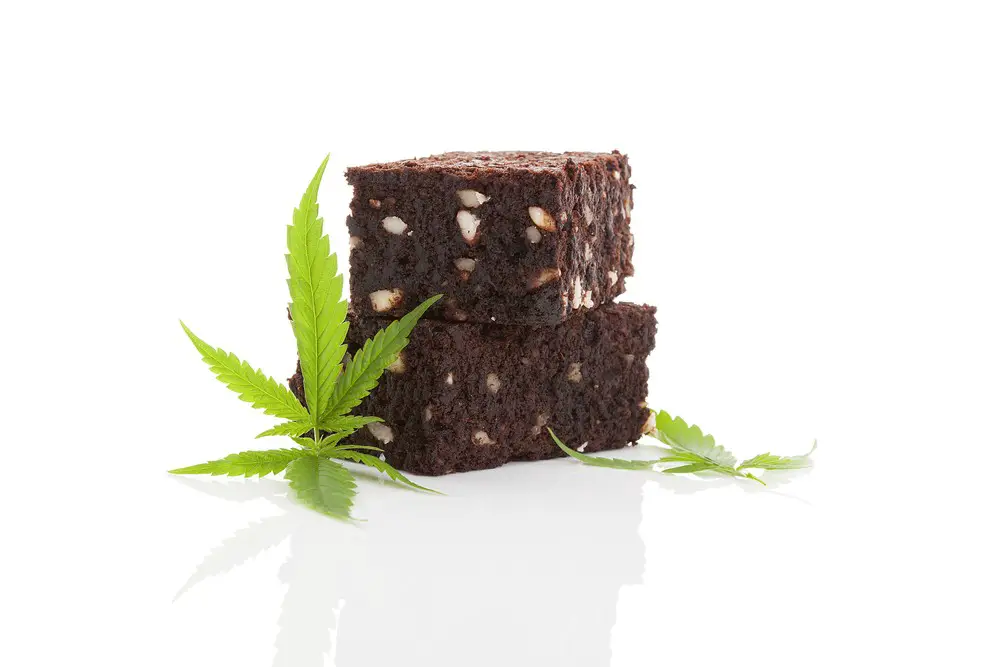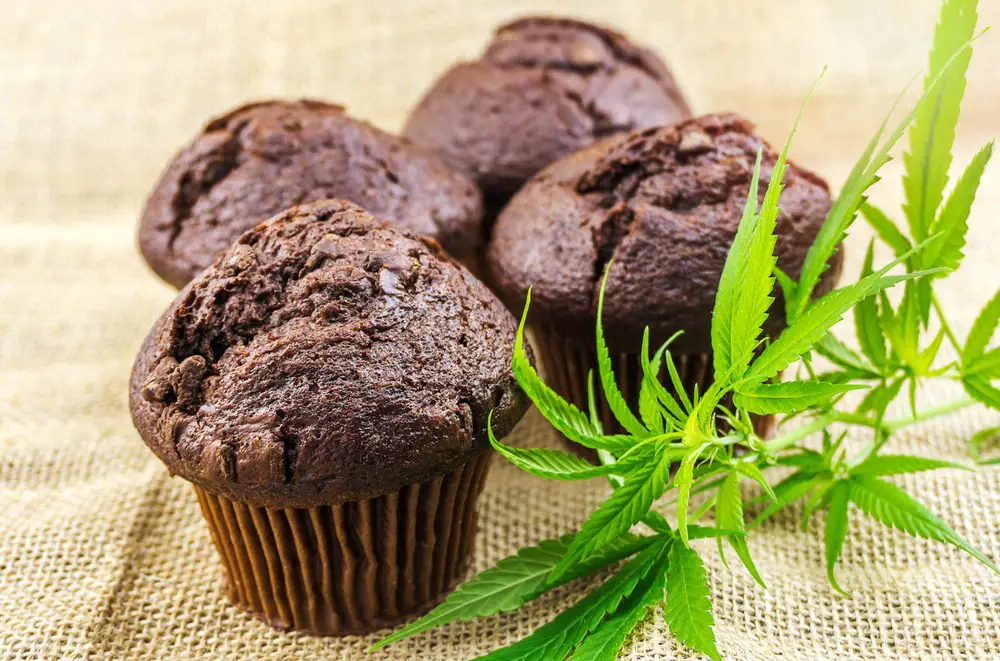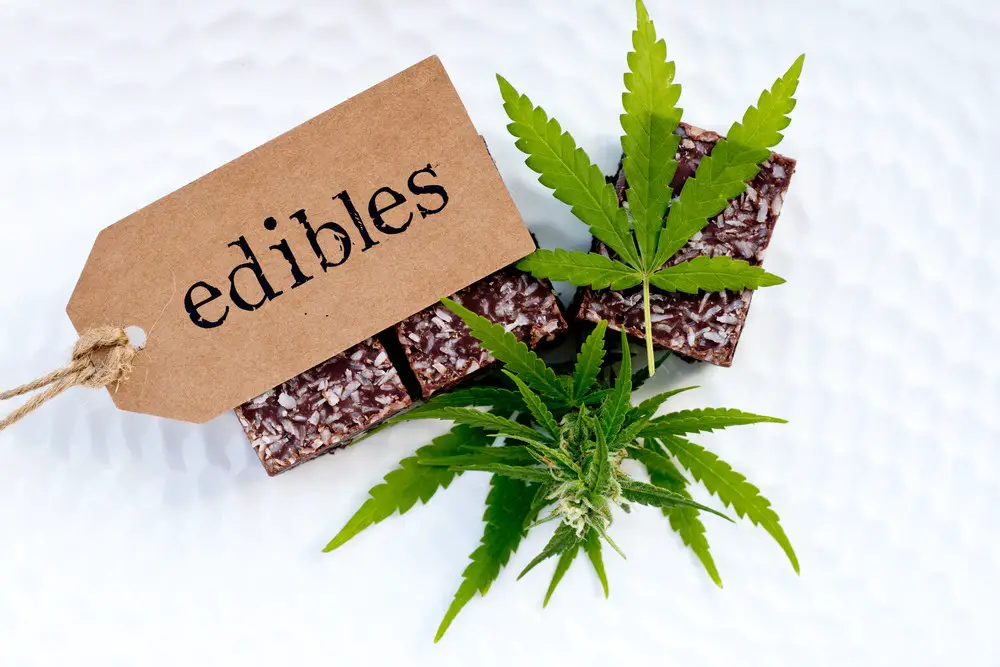As a BetterHelp affiliate, we receive compensation from BetterHelp if you purchase products or services through the links provided
Anxiety affects millions worldwide, and many seek alternative treatments to manage their symptoms. One option that has gained traction in recent years is using edibles. Edibles, which are food products infused with cannabis compounds, have shown promise in helping to relieve anxiety for some individuals.
The active ingredients in edibles, such as cannabidiol (CBD) and tetrahydrocannabinol (THC), can have a calming effect on the mind and body. As a result, they may provide a more natural and holistic approach to anxiety management. With various edible forms and dosages, the key to finding the right product is understanding your personal needs and preferences.
Key Takeaways
- Edibles are a promising alternative treatment for anxiety
- A variety of forms and dosages are available to cater to individual needs
- Experimenting with different types of edibles and dosages is vital for discovering the best fit for anxiety relief

Understanding Edibles for Anxiety
Causes and Types of Anxiety
Anxiety disorders are the most common mental health disorders experienced by millions globally. The common types of anxiety disorders include generalized anxiety disorder, social anxiety disorder, and panic disorder. Various factors, such as social situations, environmental stressors, or genetic factors, can trigger them.
Cannabis, CBD, and THC
Cannabis has been widely researched for its potential to provide relief from anxiety. It contains over 100 cannabinoids, of which CBD (cannabidiol) and THC (tetrahydrocannabinol) are the most well-known. While THC is psychoactive and can produce intoxicating effects, CBD is non-intoxicating and has been shown to provide various health benefits, including anxiety relief.
CBD
CBD is primarily derived from hemp, a strain of cannabis known for its low THC content. Research suggests that CBD may work by interacting with the endocannabinoid system (ECS), a complex cell-signaling system responsible for regulating various physiological processes, including mood and anxiety. One of the ways CBD may help alleviate anxiety is by boosting serotonin signaling, a neurotransmitter involved in maintaining mood balance.
THC
On the other hand, THC is the primary psychoactive component in cannabis. It stimulates dopamine release, leading to a sense of relaxation and pleasure. However, for some individuals, especially those predisposed to anxiety disorders, THC may exacerbate their anxiety symptoms. Therefore, it is crucial to choose cannabis products with an appropriate ratio of CBD and THC to manage anxiety effectively.
Edibles
Edibles are a popular method of consuming CBD or THC, often preferred by those seeking an alternative to smoking or vaping. Edibles can be found in various forms, such as gummies, chocolates, and baked goods. They typically offer a more controlled and longer-lasting release of cannabinoids, potentially resulting in sustained anxiety relief.
When choosing edibles for anxiety, it is essential to consider the dosage and the ratio of CBD to THC to avoid any unwanted side effects. Individuals sensitive to THC should opt for CBD-dominant edibles, while those seeking a combination of relaxation and an uplifting effect may benefit from a balanced CBD-to-THC ratio. It’s important to start with a low dose and incrementally adjust as needed.
Terpenes
Terpenes, another component of cannabis, may also play a role in anxiety relief. Terpenes are aromatic compounds responsible for the distinct fragrances of different cannabis strains. Various terpenes have shown potential therapeutic properties, with some believed to have calming and anxiolytic effects. Combining terpenes with cannabinoids may result in an entourage effect, enhancing the overall anxiety-relieving properties.

Different Forms of Edibles
Common Types of Edibles
Various forms of edibles are available in the market to help alleviate anxiety. The most popular types include gummies, capsules, beverages, and tinctures. Gummies are chewable candies that come in different flavors, making them appealing to many individuals. Capsules resemble regular pills and can be easily swallowed with water. Beverages typically consist of teas or infused drinks containing cannabinoids. Tinctures are liquid extracts administered via dropper under the tongue or added to food and drink for easy consumption.
Other product forms, like CBD oils, lotions, and creams, exist. While not considered edibles, these forms can be applied topically or ingested, depending on the product.
CBD vs. THC Edibles
When choosing edibles for anxiety management, it is essential to understand the difference between CBD and THC edibles. CBD (cannabidiol) is known for its non-psychoactive properties and potential ability to mitigate anxiety symptoms. On the other hand, THC (tetrahydrocannabinol) can induce psychoactive effects and may not be suitable for anxiety management.
CBD oil-based products have become increasingly popular due to their potential benefits and standardized dosage options, as shown in the table below:
| Form | Dosage Guide |
|---|---|
| Capsules | 10-25mg per capsule |
| Gummies | 5-50mg per gummy |
| Oils | Varies, usually administered via drop or spray |
| Tinctures | Varies, can be administered via dropper |
It is recommended to start with a lower dosage and gradually increase it as needed, monitoring for side effects or reactions. In conclusion, knowing the available edible forms and choosing the appropriate CBD or THC-based product is crucial for managing anxiety effectively.
How to Choose the Right Edibles
Finding the Right Product
When selecting edibles for anxiety, it’s essential to consider the dose and type of cannabinoids present. Generally, it’s best to start with a low dose and gradually increase it until you find one that effectively addresses your anxiety. Talk to a dispensary or medical professional for guidance on finding a suitable product.
Choose a product that uses full-spectrum or broad-spectrum hemp extract. This will ensure a comprehensive range of cannabinoids, such as CBD, CBN, and CBC, as well as cannabis terpenes. These ingredients enhance the therapeutic benefit, known as the entourage effect.
Some examples of reputable brands with quality products include Cornbread Hemp, Five CBD, and CBDfx.
Assessing Quality and Safety
| Factor | Tips |
|---|---|
| Ingredients | Look for edibles made with organic ingredients and free from artificial additives. |
| Potency | Ensure the product lists the total amount of cannabinoids and the potency of each serving. |
| Safety | Choose a brand that conducts third-party testing for purity and potency, and provides access to the results. |
| Efficacy standards | Avoid products with exaggerated health claims. Stick to reputable brands that follow federal level regulations. |
Pay attention to the Grapefruit Warning. Consult a healthcare professional if you take other medications, as CBD can interact with them like grapefruit.
Watch for potential side effects, such as fatigue, dizziness, or gastrointestinal discomfort. Determining the right dose and weight for your body and your unique mental health condition is essential. Integrating rest and other relaxation techniques may help alleviate anxiety symptoms alongside your chosen edible.
With proper research and a focus on quality, you can find the right cannabis edible to help with anxiety, PTSD, and other mental health-related concerns. Remember to consult a therapist or healthcare professional for personalized advice and guidance on using cannabis for anxiety treatment.
Dosage and Usage Tips
Determining Dosage
When determining the edibles dosage for anxiety, consider factors such as weight, product potency, and individual sensitivity. Start with a low dose, typically 5-10 mg of THC or CBD per serving. Monitor the effects and gradually increase the dosage if necessary. Remember that it can take up to two hours for the full effects to be felt.
It is important to choose the right product for your needs. Cannabis edibles come in various forms, including:
- Gummies
- Capsules
- Tinctures
- Beverages
- Lotions
How to Use Edibles for Anxiety
When using edibles for anxiety, follow these steps:
- Select a product: Choose an edible product containing the appropriate cannabinoids, such as CBD for anxiety relief and minimal psychoactive effects or a THC and CBD blend for a more balanced experience.
- Do your research: Look for products with added terpenes that may support anxiety relief, such as lemon balm, as well as those derived from a hemp plant, for more consistent dosing.
- Consider potential interactions: Consult a healthcare professional to discuss potential interactions between the chosen product and existing medications.
- Start low and slow: Begin with a low dose, taking note of its effects, and adjust as needed.
- Find your routine: Use edibles, exercise, and other healthy habits to support anxiety management.
Remember only to purchase cannabis edibles from a reputable dispensary and be aware of potential side effects. By following these guidelines, individuals can find the optimal dosage and usage practices for anxiety relief using edibles.
Conclusion
In anxiety management, edibles have emerged as a promising alternative to traditional pharmaceutical interventions. By offering a more natural, measured, and controlled approach to anxiety reduction, they present a viable option for those seeking relief.
The availability of various forms of edibles, such as gummies, brownies, and beverages, allows individuals to tailor their consumption to their personal preferences and lifestyles. This versatility also enables consumers to experiment with different products to determine which works best for their needs.
When considering edibles for anxiety, starting with a low dosage and gradually increasing it to achieve the desired effects is essential. This approach ensures the least likelihood of adverse reactions and promotes a comfortable transition into incorporating edibles into one’s routine.
Ultimately, it is crucial to remember that every individual’s experience with edibles for anxiety may differ. Careful research, open communication with professionals, and mindfulness of one’s needs are all vital in determining the right course of action for each person.
FAQ
What are edibles for anxiety?
Edibles for anxiety are food products infused with cannabinoids, such as CBD or THC, which are believed to have calming and relaxing effects. These edibles come in various forms, such as gummies, chocolates, and baked goods.
How do edibles for anxiety work?
When ingested, the cannabinoids in the edibles interact with the endocannabinoid system in the body, which regulates mood, stress, and other emotional responses. By interacting with this system, edibles can help alleviate anxiety symptoms for some individuals.
What is the recommended dosage for edibles for anxiety?
As everyone’s tolerance and reaction to edibles can vary, starting with a low dose (e.g., 5-10 mg of CBD or THC) is recommended and gradually increasing as needed. It is essential to consult with a healthcare professional before using edibles to address anxiety.
How long does it take for edibles to take effect?
The effects of edibles can take anywhere from 30 minutes to 2 hours, depending on factors such as metabolism, body weight, and the edible consumed. It is essential to be patient and not consume additional edibles until the initial effects are felt.
Are there any side effects of using edibles for anxiety?
Side effects of edibles can include drowsiness, dizziness, and dry mouth. Overconsumption of THC-infused edibles may increase anxiety or paranoia in some individuals. It is recommended to start with a low dose and monitor for any side effects.
Can anyone use edibles for anxiety?
While edibles may be suitable for some individuals suffering from anxiety, they may not be appropriate for everyone. Pregnant or breastfeeding individuals, those with a history of substance abuse, or those taking certain medications should consult a healthcare professional before using edibles to manage anxiety.
- 7 Ideas to Help You Relax and Unwind on a Family Vacation - April 27, 2025
- How Having Cybersecurity Protection Helps You Relax - April 25, 2025
- 8 Reasons Why Spending Time Outside Calms You Down - April 25, 2025
This site contains affiliate links to products. We will receive a commission for purchases made through these links.



